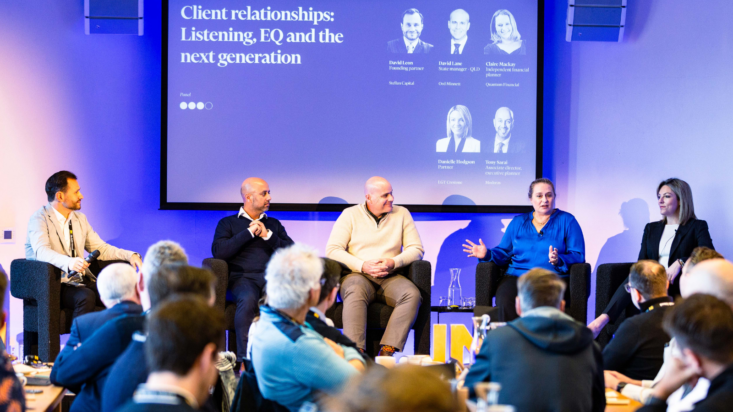‘Play to whatever makes you stand out’: Advisers discuss what makes them unique
To say that financial advisers provide a generic service would be inaccurate. The nature of the profession demands a level of intimacy with clients that brings out a person’s character, emotions and the idiosyncratic quirks that reveal themselves over time. All advisers are different, which means the way they provide advice varies.
And yet the service being provided can largely look the same, which is why it’s important that advisers do embrace their personality, and the things they do that make them different.
According to a panel of leading advisers at The Inside Network’s Investment Leaders Forum in Queenstown, New Zealand, professionalism and personality should co-exist in a client/adviser relationship.
For Claire Mackay, principal adviser at Quantum Financial, letting your true self shine is not only key to building trust with clients, but the only sustainable way to maintain the relationship.
“You’ve got to play to whatever it is that makes you stand out,” Mackay said. “Lean into whatever it is. If you’re flamboyant and outgoing, you own that. Whatever you are, people are going to either like it or not, and you’ll have much more fun working with the clients that do.
Mackay explained how she tells younger advisers “don’t try and be me”. While they know how she would handle a client conversation, they need to do it in their own way and on their own terms.
“Because clients are savvy,” she continued. “They can smell fakeness, they can smell shallowness. They can smell it from a mile away. And you also emanate it because you fear how soon will they find out the truth. The authenticity is actually really important.”
LGT Crestone partner and investment adviser Danielle Hodgson explained how she keeps a relatively exclusive client book so she can maintain personal relationships. “I have 28 families that I take care of,” she said, adding that while she is open to taking on new business, she doesn’t go out networking or prospecting any more.
Mackay agreed: “I couldn’t handle 250 clients,” she said. “I wouldn’t know all their names, their dog’s names, their birthdays, their children or their holidays. I’m a customized business, so a client is not going to come to me to be a number.”
The right guardrails
According to Modoras adviser Tony Sarai, an advice practice needs to have the rights systems and culture in place so advisers then have appropriate guardrails to let their true character develop in front of clients. “If you have the right routines and the right processes in place, that will set you free,” he said.
While he wants the advice coming from the Modoras adviser base – the company now has around 400 staff – to be relatively uniform, the advisers themselves are able to be unique because they have the right elements behind them.
“We work really hard on our people, our culture and our process,” he said. “We want to be known for being great people, so we spend a lot of time with our people from a cultural side, but then we also have a centralized process.”
War for talent
Ord Minnett senior adviser David Lane made the point that advice practices need to make more of an effort to not only encourage advisers to be their true selves, but more of an effort to hire people that come from different backgrounds and think differently. By doing that, he continued, they’ll be better equipped to connect with younger generations and retain clients through succession.
“Traditionally, unfortunately, there’s a lot of old white males in the industry,” he said. “We need to change that and change that diversity to appeal to the next generation, because we need to be able to relate to those people speaking about family succession.”
Part of helping young adviser to grow into their adviser personality, Lane explained, was giving them the training and resources so that they’re confident enough to be themselves.
“The education is around the stuff they don’t learn at university,” Lane said. “They learn the technical information at university, but it’s more about the client relationships and having difficult conversations, talking about when their portfolio doesn’t return… and building those relationships.”











